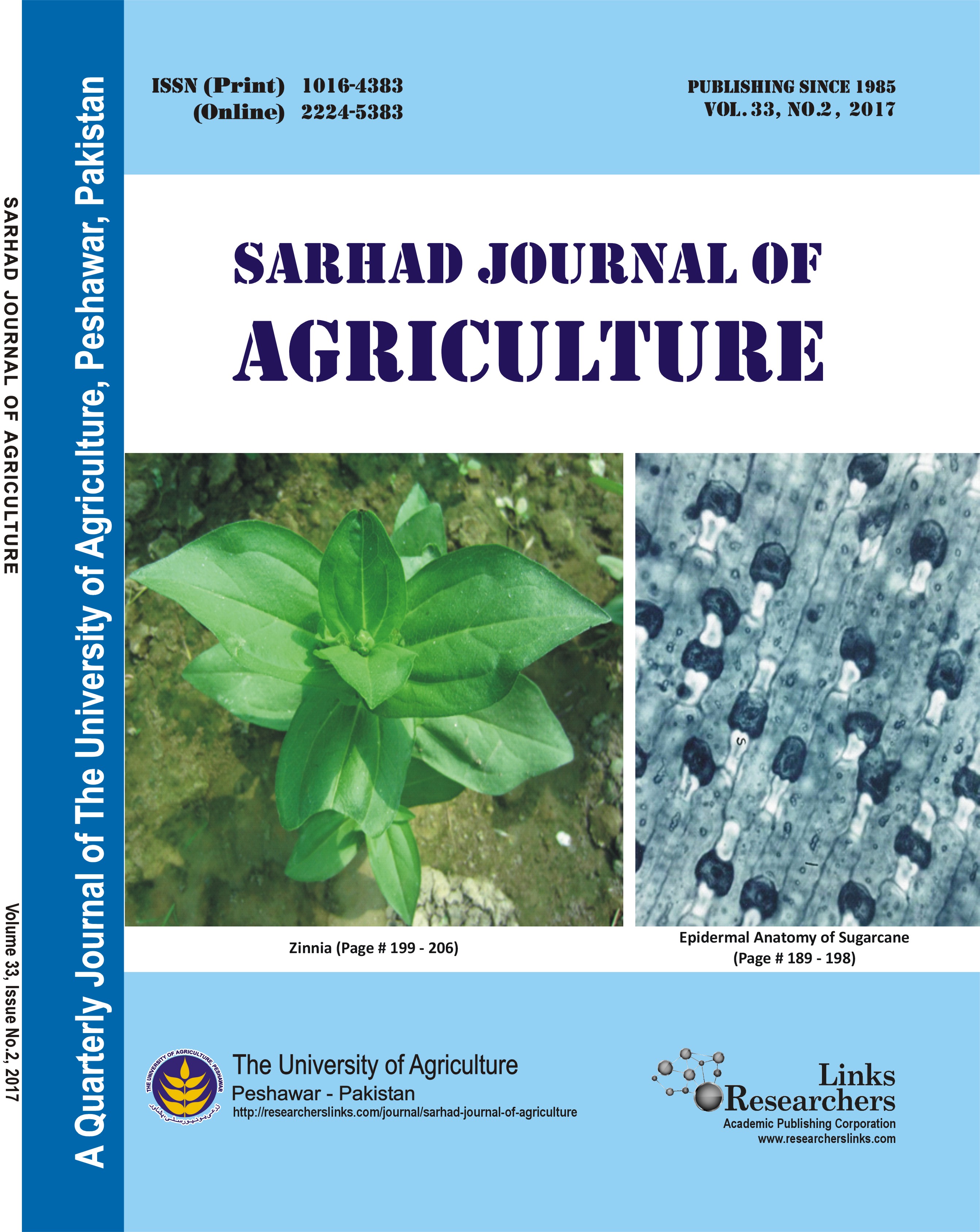Adoption of Bio-Security Threats Management Practices and Food Security among Arable Farmers in South-West, Nigeria
Adoption of Bio-Security Threats Management Practices and Food Security among Arable Farmers in South-West, Nigeria
Seyi Olalekan Olawuyi1*, Adedotun Oluwagbenga Anjorin2, Oluwagbenga Titus Alao3, Tosin Dolapo Olawuyi3, Rachael Ajibola Ayinla3 and Rasheed Ayodele Ayinla3
ABSTRACT
Farmers are faced with the problem of food insecurity, which is driven by climate extreme events, soil degradation, economic instability, lack of sound agricultural policy, unstable political situation, herders-farmers crisis, and other pressing challenges. Most notably, bio-security threats, and other unobserved events ravaging the agri-food system, and causing significant loss of farm output, disruption of food supply chain, as well as loss of returns and other economic damages. This research interrogated the effect of adoption of bio-security threats management practices on arable crop farmers’ food security status in South-West, Nigeria, using cross-sectional research design, with the dataset elicited from 403 farmers drawn through a multi-stage random sampling technique. Data were analyzed using frequency distribution and percentages, cross-tabulation, and food insecurity experience-based scale for the continuum categorization of farmers’ food security status. Ordinal logistic regression model was applied to estimate the effect of adoption of bio-security practices and other dynamics on the farmers’ levels of food security status. Findings revealed that crop farmers were aware of bio-security threats, but with low adoption of bio-security threats management practices. One-third of the farmers were also vulnerable to transitory and chronic food insecurity status. The odds ratio estimates of the ordinal logistic regression model also indicated that gender of the farmers (p<0.05), years of formal education (p<0.1), dependency ratio (p<0.01), farm size (p<0.05), adoption of bio-security (p<0.1), land ownership (p<0.1), and access to bio-security information (p<0.1) have significant influence on the levels of farmers’ food security status in the study area.
To share on other social networks, click on any share button. What are these?








